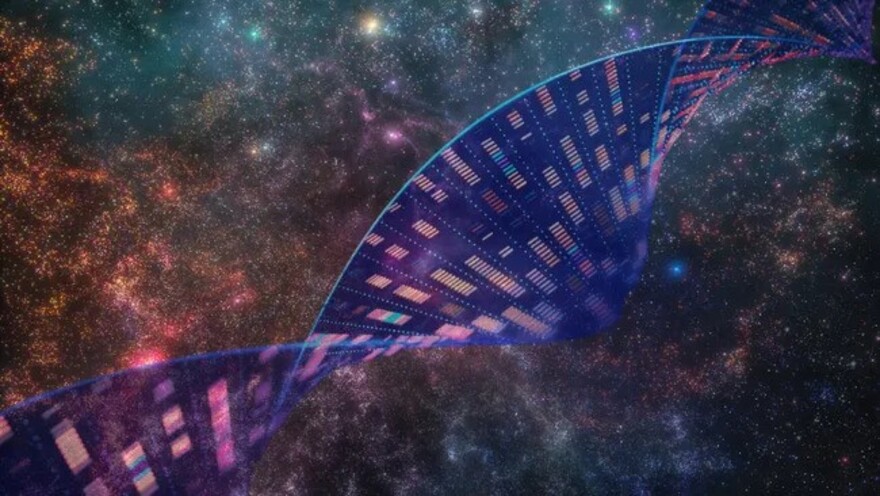Space is such a harsh place that some scientists suggest using robots rather than humans to explore it. However, others are in no hurry to deny us the right to visit space ourselves. But for this people have to change their DNA and become genetically modified organisms.

Discussion on human capabilities in space
The Conversation recently published an article by researcher Sam McKee on the possibility and necessity of genetically modifying humans to live in space. The author advocates the idea that in order to settle beyond the Earth we need to change not only the DNA of plants and animals, but also our own.
The starting point for raising this topic was a discussion at the British Astronomical Society in January this year. Its participants were astronomer Martin Rees and Dr. Robert Zubrin, an active promoter of Mars exploration.
The former is known as one of the co-authors of the book “The End of Astronauts” in which he advocates the view that the human body is not fit for space travel. Therefore, we should send machines instead of ourselves. However, Zebrin disagreed and said that we should fly to Mars. And in the context of that, the idea of modifying people’s DNA to fly into space was raised.
How and why we should genetically modify people
The idea of genetically modifying humans to live in space that Sam McKee defends in the article is not that new. It has long been known that there are too many factors that make it almost impossible to live there on a regular basis. And the main one is radiation. Due to the absence of the ozone layer, it is always present there.
If astronauts were to live in space for one or more decades, they would almost inevitably get one or more cancers. In addition, children born in space can also have serious health problems. And even pets and cultivated plants can suffer from ionizing radiation.
And that’s the problem that DNA modification is supposed to solve. Scientists propose changes to it to help repair its radiation-damaged areas. Among other things, it can also help increase the life expectancy of people.
Scientists are looking with particular interest at the water bears. These tiny living creatures with eight limbs can be found in any puddle of earth. They demonstrate incredible resistance to various unfavorable factors, including radiation. Therefore, the researchers are serious about transferring their abilities to humans by editing DNA.
DNA editing
The changes in DNA, carried out with high precision, are not a fantasy for a long time. Back in 2011, scientists mastered the Crispr-Cas9 technology. It is so simple that it can be used in a school laboratory or on a space station. Basic and primary editing techniques then emerged to make much better changes to the DNA of living things.
In general, genetic research is creating incredible opportunities to improve the quality of life for the inhabitants of space. In particular, personalized medicine, in which drugs are tailored to the individual, is becoming available to them. But there’s a slightly different problem with editing the human genome.
This activity is now banned almost everywhere. However, there is talk of relaxing the rules in many places. Then there will be an opportunity for practical research, which can’t be done instantaneously either.
In 2018, Chinese scientist He Jiankui announced that he had edited the genome of two unborn children, thus keeping them safe from AIDS. He was imprisoned for this, but he has now been freed and is doing research again.
Experts draw attention to the fact that we are on the threshold of a new space race. It won’t be long before countries start sharing planets in the Solar System. And under these circumstances, the possibility of getting people adapted to life in space before competitors can override even old fears of changing one’s own nature.
According to www.space.com


